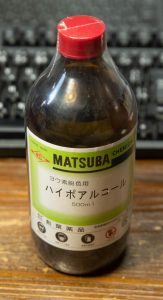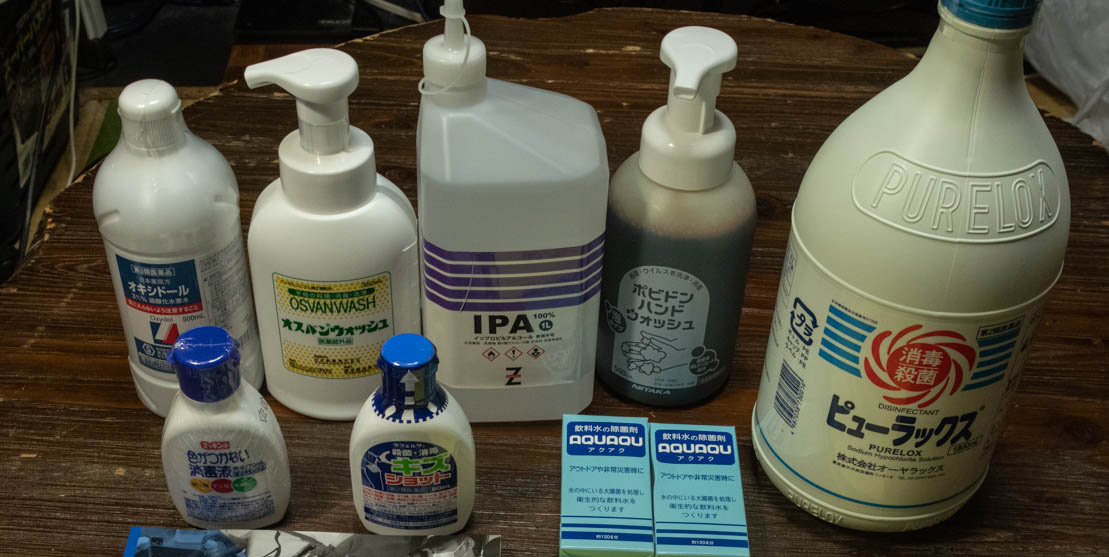ヴェーバーの「中世合名会社史」の日本語訳の第20回目を公開しました。
この章全体がそうですが、この論考における中心部分であるだけに、ドイツ語の部分がかなり難解で、理解するのに何度も読み直して利して四苦八苦しています。現時点ではまだ満足できる日本語訳のレベルには達していないと思いますが、後を読んでいけばまた現在の部分もより良く理解出来ることもあると思い、公開しました。
合名会社や合資会社におけるもっとも重要な概念は「有限責任」「無限責任」だと思いますが、ヴェーバーはこの2つの会社形態においてそういう概念がどこから生じたのかを家ゲマインシャフトの「共通の家計」に求めています。
フィキサチフ(Fixative)
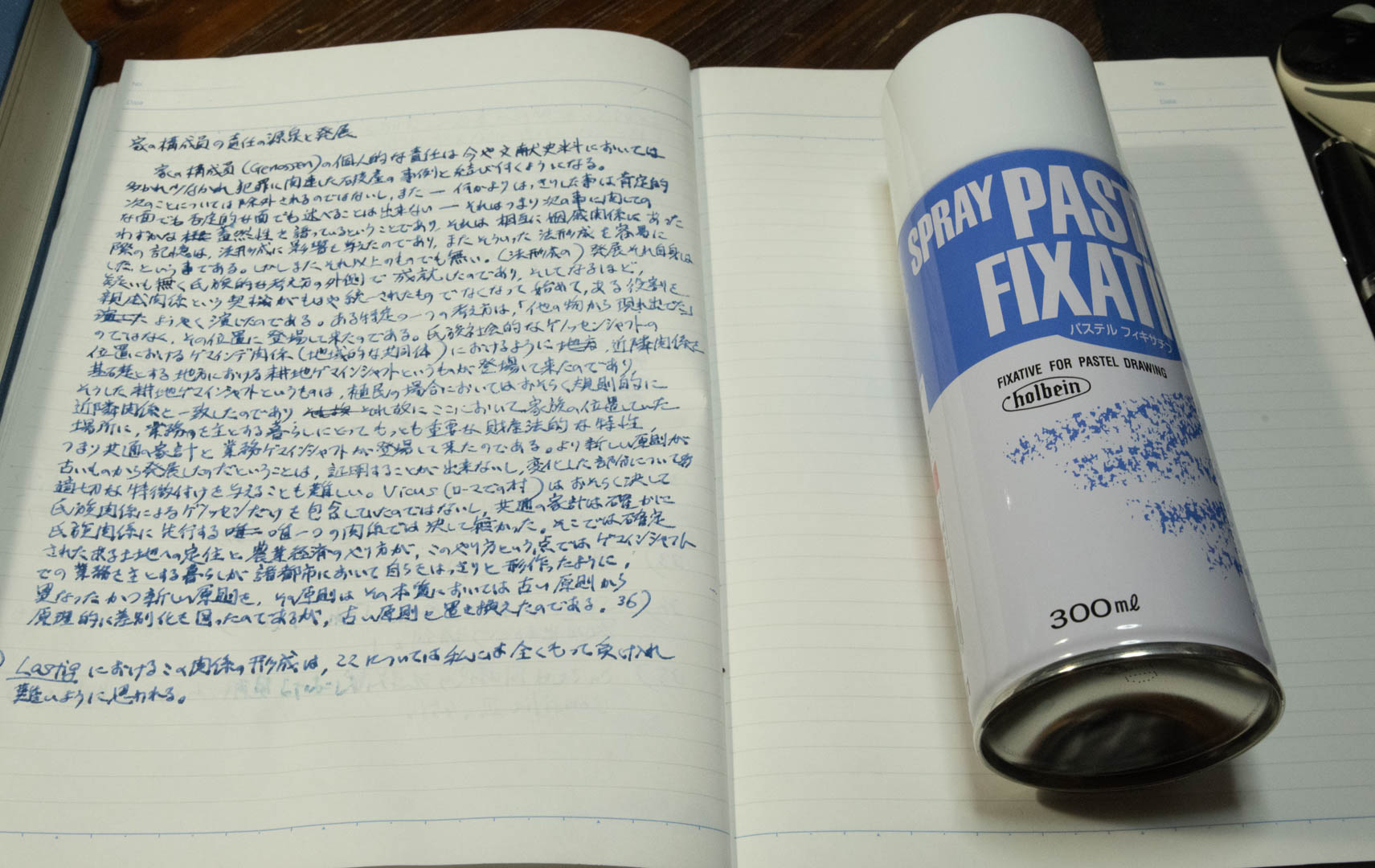 これは新しい消毒剤ではありません。(笑)これはフィキサチフ(Fixative)と言います。絵の道具で下に塗った絵の具が滲まないようにして重ね塗り出来るように樹脂の層を吹き付けて作る薬品です。万年筆の水性インクが水などでにじまないようにするのに使えないかと思って買ってみました。今テスト中ですが、効果はありますが、完全に水をはじくには何回か重ね塗りしないといけないようです。
これは新しい消毒剤ではありません。(笑)これはフィキサチフ(Fixative)と言います。絵の道具で下に塗った絵の具が滲まないようにして重ね塗り出来るように樹脂の層を吹き付けて作る薬品です。万年筆の水性インクが水などでにじまないようにするのに使えないかと思って買ってみました。今テスト中ですが、効果はありますが、完全に水をはじくには何回か重ね塗りしないといけないようです。
何でこんなマニアックなものを知っているかと言うと、藤子不二雄Aの「まんが道」で出てきたからです。藤子不二雄の二人がカラーの扉絵を描くことになり、ベースの線画は出来て、それに絵の具で色を塗ろうとしたらインクがにじんで困っていたら、当時アニメーターをやっていた同じトキワ荘の住人の鈴木伸一が、「いいものがある」って取り出しのがこのフィキサチフでした。実はフィキサチフには何種類かあって、最初に買ったのは木炭コンテ用でした。買い直したのがパステル画用です。品名も最初のはフキサチーフになっていました。
アルコールティッシュの代替品
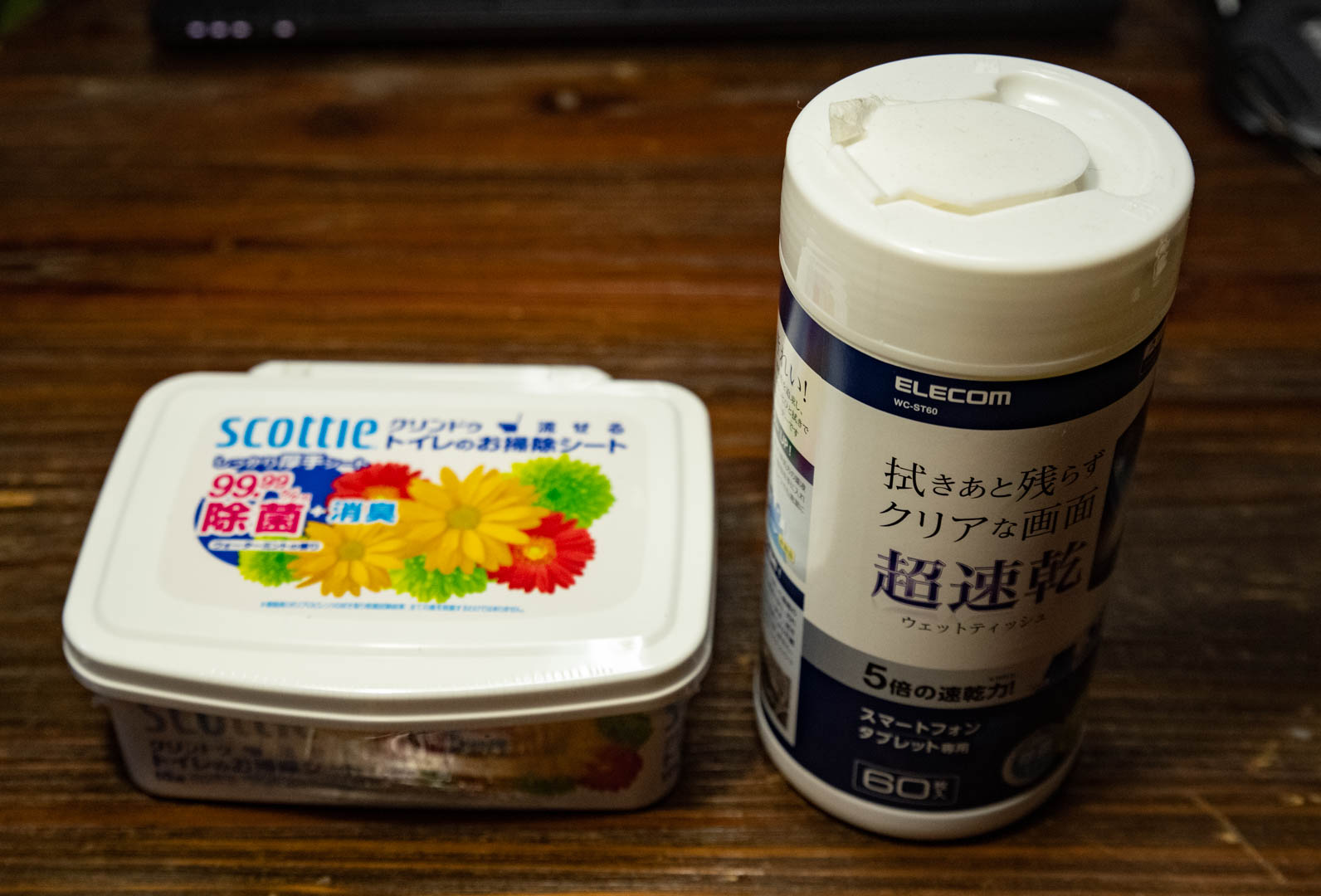

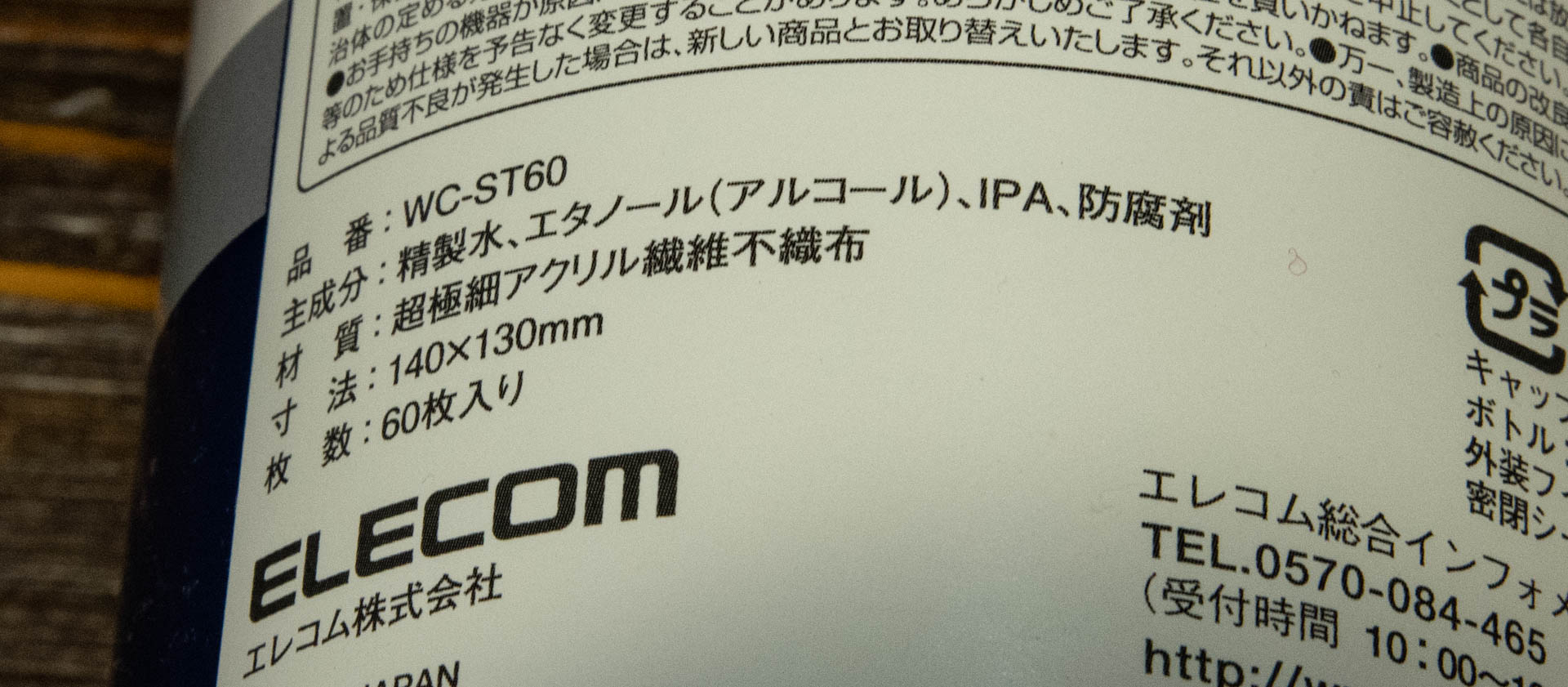 賢い消費者になり、新型コロナから身を守りましょう。
賢い消費者になり、新型コロナから身を守りましょう。
あれこれ家庭の消毒について調べてみて、次亜塩素酸ナトリウムは広いエリアをまとめて消毒する時はいいですが、身の回りの物を消毒するにはとても使いにくいと思いました。特に消毒するその度に希釈液を作る必要があること、またアルコールに比べて即効性が弱く、拭いて消毒するんだったらかなり何回も拭かないといけないこと、かつ一度拭いた後臭いが残ったり、金属だったら腐食するのでまた別のもので拭き取らないといけない、などかなり面倒です。
スマホとかPCのキーボードを消毒するんだったら、やはりアルコールウェットティッシュが最適です。しかしご承知の通り、アルコールティッシュは売り切れかあってもとても高価になっています。
でも世の中には、ほとんど同じ物で別用途として売られている物が沢山あります。たとえばここに挙げた、トイレ用のお掃除シートとOAクリーナーです。トイレ用のお掃除シートの成分は精製水、エタノール、PG(プロピレングリコール)、除菌剤(詳細不明)、消臭剤、香料です。PGは化粧品などにも使われているので問題無いと思います。
OAクリーナーの方は精製水、エタノール、IPA、防腐剤で消毒用として最適な成分です。
重要なのはどちらも流通に在庫があって比較的簡単に買えることです。「トイレ用」だからといって、中身が何か不潔だったりはまったくしません。(除菌タイプなんだから当たり前。)
私は最近はスマホとiPodは特に毎日この手のアルコール系シートで拭いて殺菌しています。
NHK杯戦囲碁 安達利昌7段 対 秋山次郎9段
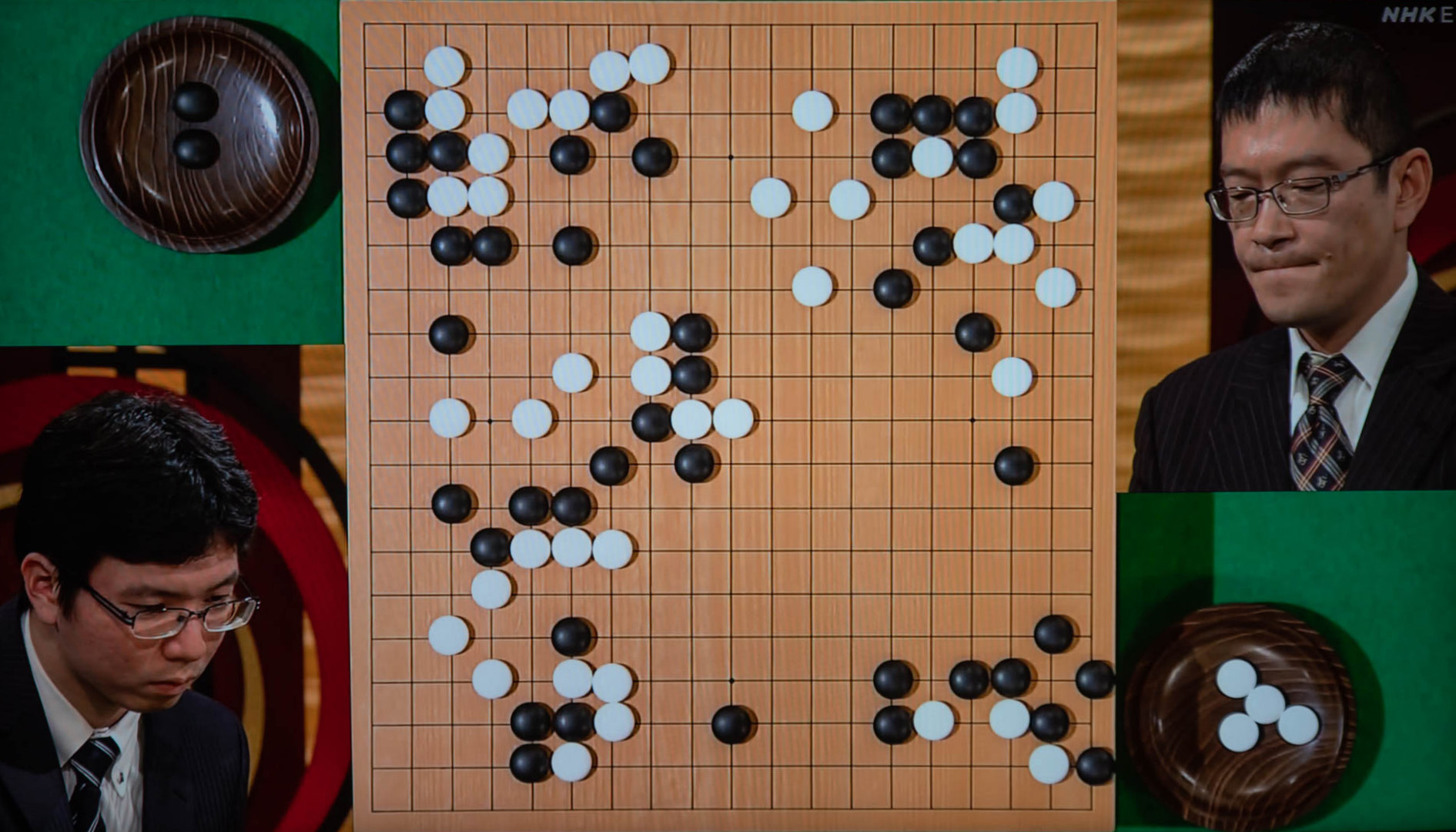
本日のNHK杯戦の囲碁は期が新しくなっての初戦で、黒番が安達利昌7段、白番が秋山次郎9段の対戦でした。お互いが地を囲い合う地味な布石から局面が動いたのが白が右下隅の黒の二間ジマリに置いていった時です。白は単体での活きは難しく、劫に持ち込みました。白からは右上隅に何劫か有り、黒は劫立てに応じていられず、劫を解消して右下隅を大きな黒地にしました。その代償で白は右上隅の地を取り、なおかつその周辺の黒を攻めることになりました。ここでの戦いが1段落した後、焦点は黒が左辺の白に打ち込んでいった辺りの戦いでした。この結果は黒白が中央でお互いに眼が無い集団が二つずつあるという激闘になりました。結果は黒にわずかに指運みたいなものがあり、黒が攻め合い一手勝ちで白の一段を仕留め、白の投了となりました。安達7段は秋山9段に初勝利です。
本日の読売新聞朝刊の次亜塩素酸ナトリウムによる消毒についての問題記事
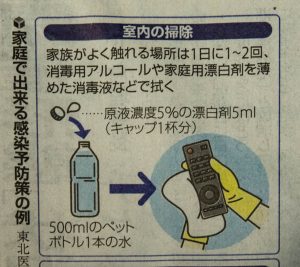
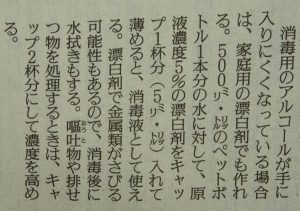 昨日、次亜塩素酸ナトリウム剤であるハイターとピューラックスの違いについて書いたばかりなのですが、今日の読売新聞の朝刊にかなり問題な記事が出ていました。以下を読売新聞にメールしましたが、訂正記事とか出るのかどうか見守りたいと思います。特に誤飲につながりやすいペットボトルに次亜塩素酸ナトリウム希釈液を作るというのはかなり問題だと思います。
昨日、次亜塩素酸ナトリウム剤であるハイターとピューラックスの違いについて書いたばかりなのですが、今日の読売新聞の朝刊にかなり問題な記事が出ていました。以下を読売新聞にメールしましたが、訂正記事とか出るのかどうか見守りたいと思います。特に誤飲につながりやすいペットボトルに次亜塩素酸ナトリウム希釈液を作るというのはかなり問題だと思います。
=========================
本日朝刊の「コロナから守る」の次亜塩素酸ナトリウム(漂白剤)による消毒の記事は不正確かつ誤解を招きます。
(1)原液濃度5%の漂白剤を使うと書いてありますが、そもそもハイターなどの家庭用漂白剤に濃度の表示はありません。これはメーカー側が実際に家庭で使われる時の濃度を保証できないからです。実際には製造時は6%程度で、それが流通在庫などを経て家庭で使われる時は濃度が低下し、普通3%程度になります。家庭での開栓後はさらに濃度が低下していきます。下記に花王のキッチンハイターの薄め方の説明がありますが、ここで花王が想定している原液濃度は2%であることは計算すればすぐ分ります。記事の5%の想定の半分以下です。従って記事の通り希釈液を作っても次亜塩素酸ナトリウム濃度は半分以下になり、十分な殺菌効果は出ないことが懸念されます。
https://www.kao.com/jp/soudan/topics/topics_107.html
医療用のピューラックスなどの製品なら一年間の使用期限内は濃度6%を維持することが保証されています。
(2)(1)からも分るようにメーカー(花王)は漂白剤の用途以外の使用について何の保証もしていません。もちろん推奨もしていません。製品にそう書いてあります。
(3)通常布巾などをキッチンハイターなどで消毒する場合には、2分ほどつけ置きするようにとされています。従って布等に液を付けて拭いても、十分な消毒効果は出ません。
(4)何かを次亜塩素酸ナトリウム希釈液で拭く時にパルプ製品(キッチンペーパー、ティッシュペーパーなど)を使うと、塩素が不活性化され消毒効果が出ません。このことについての注意がありません。
(5)記事ではペットボトルを使うようになっていますが、これだとまるで作った液を貯めておいてまた利用できるかのような誤解を与えます。実際は希釈液は時間が経つにつれて塩素が抜けていきます。希釈液はその都度作るものです。またペットボトルに貯めておいて間違えて幼児等が誤飲する危険性もあります。家庭用の次亜塩素酸ナトリウムには水酸化ナトリウムが入っており、飲用出来ません。
====================================================
今良く見直したら、記事は「ペットボトル一本分の水」と書いてあるだけで、ペットボトルをそのまま使えとは書いていません。イラストレーターが良く考えないで描いたんでしょうね。
追伸:
記事には「東北医科薬科大学のハンドブック」を参照したとあります。しかしそこに書いてあるのは、(薄めた結果として)0.05%の次亜塩素酸ナトリウム水溶液を使え、と書いてあるだけで、どこにも元の漂白剤の濃度が5%だとか、ペットボトルに入れろなどとは一言も書いていません。不適切な説明を入れたのは読売新聞の責任です。(ただ一箇所だけ、次亜塩素酸ナトリウム水溶液にティッシュを使うのは間違いでこれは東北医科薬科大学の責任です。次亜塩素酸ナトリウム水溶液の塩素濃度がパルプによって低下するという実験結果はここを見てください。)
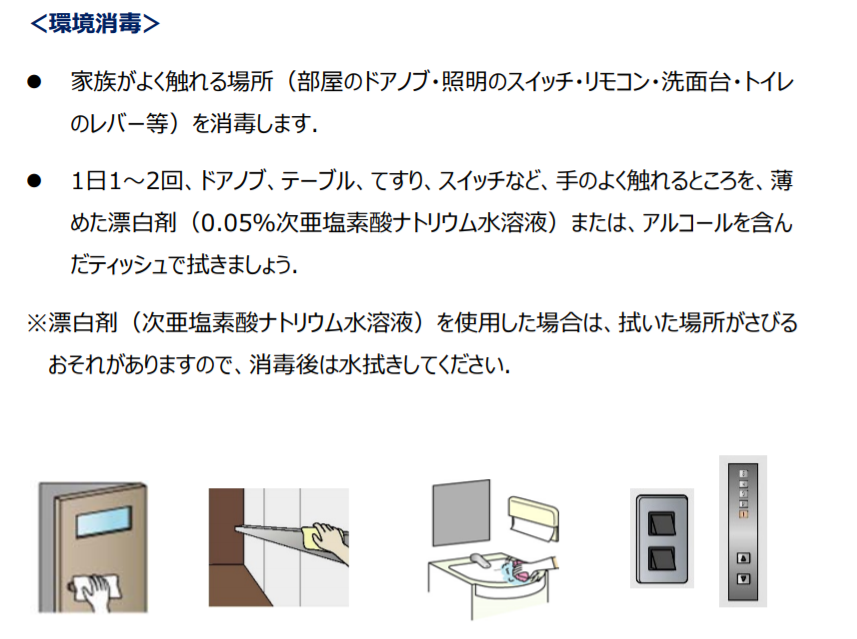
ハイポアルコール(ヨウ素脱色用)
家庭用消毒剤まとめ
 家庭で出来る消毒についてノウハウをシェアします。仕事で医療機器用電子部品をずっと調査していて、また病院に見学に行ったりもしていますので、消毒や滅菌には一応知識が前からありましたが、今回改めて調べ直しています。
家庭で出来る消毒についてノウハウをシェアします。仕事で医療機器用電子部品をずっと調査していて、また病院に見学に行ったりもしていますので、消毒や滅菌には一応知識が前からありましたが、今回改めて調べ直しています。
1.消毒と滅菌
消毒→感染症の元となる微生物・ウィルスの数を減らすこと。どのくらい減らすかといった基準は存在しません。
滅菌→対象物に付着した全ての微生物・ウィルスを死滅・除去すること。
その結果については無菌性保証水準(SAL: sterility assurance level、通常残存する細菌・ウィルスの確率が 1/100万 以下)を満たす必要があります。
滅菌は、オートクレーブ(高温高圧の蒸気)、EOG(酸化エチレンガス)、放射線、プラズマ、低温蒸気ホルムアルデヒドなどで行います。いずれのものも人体には適用出来ませんしそれぞれ有毒だったり危険だったりして家庭で使えるようなものではありません。(オートクレーブは歯科医用の小型のものが30~40万円くらいで売っていますが、家庭で手軽に使うようなものではないでしょう。)
結論として家庭で滅菌を行うのは困難で、通常は消毒になります。
2.消毒薬の種類
殺菌力の強さで、高中低の三水準に分類されます。
(1)高水準消毒薬→大量の芽胞(一部の細菌が形づくる耐久性の高い胞子のような細胞構造)以外は全て死滅させることが出来る。
過酢酸(アセサイドなど)、グルタラール(ステリゾールなど)→これらは病院等で内視鏡や透析装置の消毒に使用されるものであり、取り扱いに注意が必要で一般家庭用の製品はありません。
(2)中水準消毒薬→芽胞以外の細菌・ウィルスはほぼ死滅させられる。
次亜塩素酸ナトリウム(ハイター・キッチンハイター{ハイターにはメディカルハイター・病院用ハイターも有り}、キッチンブリーチ{なお、ブリーチ bleach は英語で「漂白する」を意味する動詞で、それ単体では商標としては認められず、「○○ブリーチ」という商品は複数存在します}、ケンミックス4・10、ミルトン、ピューラックスなど)、アルコール類(エタノール、エタノール+IPA、IPA{イソプロパノール、イソプロピルアルコール、2-プロパノール})、ポビドンヨード(イソジンハンドウォッシュ、ポビドンハンドウォッシュなど)
(3)低水準消毒薬→結核菌と芽胞以外の多くの細菌・真菌・ウィルスを死滅させられる。
塩化ベンザルコニウム(逆性石鹸)(オスバン)、クロルヘキシジン(ヒビテン)など。
3.家庭用の消毒薬
一般的には、中水準消毒薬のアルコール系と次亜塩素酸ナトリウムがあれば十分です。
ただ、現在エチルアルコールはアルコールタイプのウェットティッシュを含めて極めて入手が難しく高価になっています。この代用品としてIPA(イソプロパノール)が使えます。但しエタノールよりも殺菌できる細菌やウィルスの範囲が狭く{親水型ウィルス《ライノウイルス、コクサッキーウイルス、エコーウイルス、ポリオウィルス、アデノウィルスなど》には効果がありません}、かつ毒性が強くなっています。(エタノールも毒性が有り短時間に一定量を摂ると急性アルコール中毒で死に至るのはご存知だと思いますが、IPAはその作用{中枢神経の麻痺作用}がエタノールの約2倍です。飲用は絶対にしないでください。)(IPAは脂肪を分解する力が強く、脂質で出来たエンベロープという膜を持つコロナウィルスには有効です。)病院でも注射前の皮膚の消毒や、カテーテル挿入前の皮膚の消毒はIPAでやっている場合があります。(もちろん医療用に販売されているIPAです。)IPAもエチルアルコールも消毒用に使うには精製水で70~80%くらいに薄めた方がいいです。理由は菌やウィルスを死滅させるまで10秒くらいかかるため、100%に近い濃度のものはすぐ蒸発してしまって効果が出ないからです。また傷口には使えません。(なお、医療用として販売されているのではないIPA{ネット通販で一般に市販されているものは洗浄用です}を消毒目的に使うのは、あくまでも自己責任でお願いします。私は器物の消毒用にしか使っておらず、手指等には使っていません。また後述の次亜塩素酸ナトリウムのハイターも洗濯物の漂白用であり、花王は「用途外に使わない」という注意書きを入れています。)
次亜塩素酸ナトリウムについては以下の注意点があります。(最近、新聞やWebでアルコールが入手出来ない時は次亜塩素酸ナトリウムを使え、という記事をよく見ますが、以下のように色々と注意が必要です。下記の注意事項をよく読んで十分その性質を理解してから使ってください。)
(1)必ず所定の濃度まで薄めて使用すること。
(2)殺菌する対象物が汚れている場合は効果が落ちるので、まず洗剤で洗浄してから次亜塩素酸ナトリウムで処理する。
(3)薄めた液は保存して再利用しないこと。保存しても塩素が段々抜けていって効果が落ちて行きます。
(4)次亜塩素酸ナトリウムの液を何かにつけて拭く時には、キッチンペーパーやティッシュペーパーなどの紙類(パルプ製品)に付けて拭くのは不可。塩素が不活性化され殺菌効果がなくなります。必ず清潔な布などを使ってください。ここによると、次亜塩素酸ナトリウム液をパルプ製品に付着させて、わずか5分で塩素濃度が43%にまで低下しています。
(5)アルコールに比べると殺菌の効果が出るまで時間が長くかかります。特に布に付けて何かを拭く時はそれなりの回数繰り返してください。ちなみにキッチンハイターで布巾を消毒するときは希釈液に2分漬けろと書いてあります。
(6)ハイターやキッチンハイターなどの一般向け商品は、開封しなければ冷暗所に保管して3年くらい保ちます。しかし一旦開封すると次第に塩素濃度が下がっていくため、半年くらい経ったら買い直した方がいいです。(ピューラックスなどの医療用の次亜塩素酸ナトリウムは6%の濃度が使用期限{通常1年}内は維持されますが、家庭用は最悪で2~3%にまで濃度が下がります。それを考慮して希釈する必要があります。)
(7)人の皮膚には使用できません。また取り扱う時にはゴム手袋をしてください。
(8)霧吹きに入れてスプレーしてはいけません。霧を吸い込むと呼吸器に悪影響があり、また目に入ると最悪の場合失明します。
(9)ステンレスを含む金属類を腐蝕させますので、そういうものの消毒に使った場合には改めて水拭きするなどして液が残留しないようにする必要があります。
(10)ワイドハイター(またはワイドハイターEXパワー)という製品は次亜塩素酸ナトリウムではなく漂白成分は主に過酸化水素水(オキシドール)です。キッチンハイターは次亜塩素酸ナトリウムに界面活性剤を加えたものです。
(11)ハイター、ブリーチなどの家庭用には水酸化ナトリウムが含まれていますので、飲料水の消毒には使えません。(ピューラックスは飲料水の消毒も出来ます。ですが、10Lに対して0.17mlです。つまりほんの一滴程度です。)
(12)次亜塩素酸ナトリウム水溶液のpHが4くらいの酸性になると、人体に有害である塩素ガスが発生します。決して酸性の洗剤等を混ぜないで下さい。ハイターなどの容器に「混ぜるな危険」と書いてあるのはそういう意味です。また使用する時も換気を良くしてください。特に浴室やトイレなどの狭い空間で使う時が危険です。
(13)Appleは次亜塩素酸ナトリウム水溶液でiPhoneを拭くのは不可としています。まあ、金属類に対する腐食作用が極めて強いですから、不可と言いたくなる気持ちは分ります。(情報元)
(14)次亜塩素酸水というのは次亜塩素酸ナトリウムとはまったく別物です。次亜塩素酸ナトリウムと違って人体にも使用出来ますが、次亜塩素酸ナトリウムより高価です。(次亜塩素酸水は基本的には液体を買うものではなく、食品製造の会社などで製造装置で大量に作って使うものです。現在、ネットできわめて高価に販売されているものがありますのでご注意下さい。)
その他の消毒薬で手指の消毒にお勧め出来るのはポビドンヨードです。いわゆるうがい薬のイソジンの主成分です。ポビドンヨードは病院でも医師が手術前に手を消毒したり、また手術される患者の皮膚を消毒するのにも使われます。アルコールはその瞬間は殺菌能力が高くても、すぐ揮発してしまいその後はまるで殺菌効果が持続しません。これに対しポビドンヨードは殺菌効果がある程度持続します。またアルコールと違って刺激がないため、傷口にも使えます。(昔良く傷の消毒に使われていたヨードチンキと殺菌成分は同じです。)なお、茶褐色をしており、服に付くとシミになります。それを除くにはハイポアルコール(チオ硫酸ナトリウム+エタノール)を使います。ポビドンヨードで手を洗う時の注意点は、以下です。
(1)石鹸で最初に手を洗った場合は、石鹸を十分洗い流す。
(2)ポビドンヨードを手に付けて洗いますが、30秒程度ポビドンヨードが皮膚に触れているようにします。(殺菌に必要な時間が約30秒です。)
(3)洗った後は軽く洗い流します。
オスバンなどの逆性石鹸は、一般の石鹸が陰イオンを出すのに対し、陽イオンを出すものです。厚労省のデータによると、今の所逆性石鹸のコロナウィルスに対する効果は確認されていないようです。なお、クレゾール(石鹸)やフェノール(石炭酸)などの昔良く使われた消毒剤は、臭気とか化学熱傷とか排水規制の問題で近年は結核菌の殺菌を目的とする場合を除いて、あまり使われなくなっています。
なお、ハンドソープで高シェアのライオンの「薬用 キレイキレイ」は殺菌成分としてイソプロピルメチルフェノール(IPM)を使っています。(他の薬用ハンドソープも同じでした。)残念ながらIPMはウィルスにはほとんど効果がありません。但し石鹸を含む界面活性剤はコロナウィルスのエンベロープと呼ばれる脂質の層を分解しますので、それだけでコロナウィルスの殺菌効果があります。
結論から言うと、石鹸である程度時間をかけて手洗いすればコロナウィルスは殺菌出来ます。その後アルコールを使っても、その殺菌効果は続かないのであまり意味は無いです。(コロナウィルス以外の一般的な細菌には有効です。)不安な方は上記のポビドンヨードのハンドウオッシュをお勧めします。

参考書籍:
玉川進編著、「消防職員のための消毒・滅菌・感染症対策マニュアル」、東京法令出版、2018年
大久保憲編、「洗浄・消毒・滅菌のDo Not&エビデンス125」、メディカ出版、2012年
ICHG研究会(編集)、「新・歯科医療における感染予防対策と滅菌・消毒・洗浄」、医歯薬出版 、2015年
次亜塩素酸ナトリウム剤―ピューラックスとハイターの違い
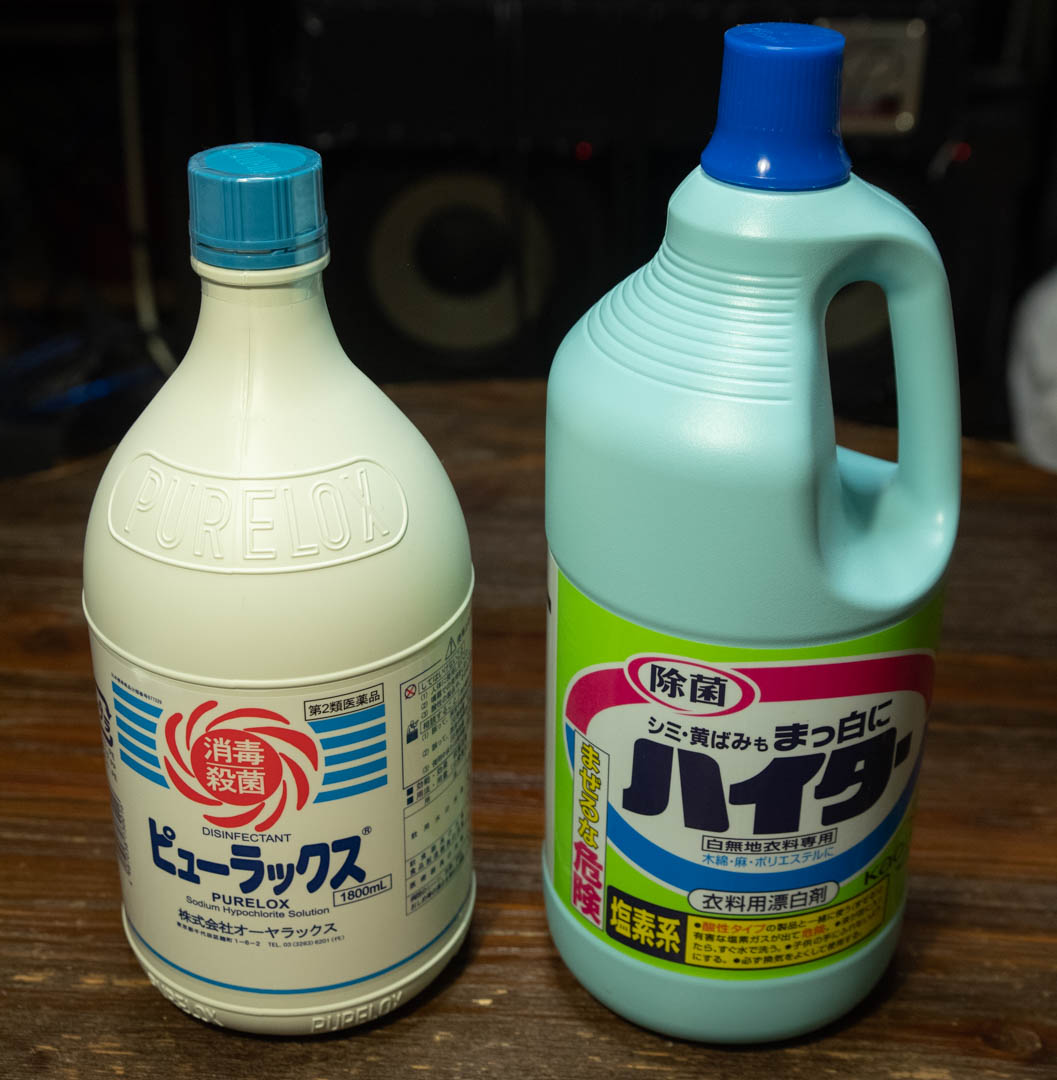

 次亜塩素酸ナトリウムの製品で、ハイター、キッチンハイターなどの家庭用とピューラックスなどの医療用があります。写真は左が医療用のピューラックスの1800ml、右が家庭用(洗濯用)のハイターの2500mlです。
次亜塩素酸ナトリウムの製品で、ハイター、キッチンハイターなどの家庭用とピューラックスなどの医療用があります。写真は左が医療用のピューラックスの1800ml、右が家庭用(洗濯用)のハイターの2500mlです。
値段はどちらもAmazonでピューラックスの方が1,408円、ハイターが424円です。(送料を除く。)100mlあたりでは、ピューラックスが78円、ハイターが17円で、ピューラックの方がハイターの約4.6倍も高いです。
それで、一体何が違うのかと思ったら、ピューラックスは容器に「濃度6%」とはっきり書いてあります。しかしハイター、キッチンハイターともどちらのの容器にも濃度はまったく書いていません。また成分もピューラックスの方は次亜塩素酸ナトリウムだけですが、ハイターの方は次亜塩素酸ナトリウム+水酸化ナトリウムになっています。
これはどういうことかというと、ハイター、キッチンハイターもメーカー(花王)での製造時は6%で作っているみたいです。しかし流通で在庫されて時間が経つにつれ、次亜塩素酸ナトリウムの濃度がどんどん低下し、最悪は2~3%ぐらいにまで落ちるようです。花王のサイトのキッチンハイターの薄め方の説明で逆算すると、原液の濃度は2%になっています。また、水酸化ナトリウムが入っているのは、アルカリ性を高めて塩素濃度の低下を抑えるのが目的のようです。しかし、水酸化ナトリウムといえば劇薬であり、ちょっと怖い感じです。
ピューラックスの方はどういう仕組みなのか知りませんが、濃度の保証が入っていて、それで値段が高いようです。ただ、使用期限は製造から1年で、濃度6%はその間だだけの保証です。また次亜塩素酸ナトリウムだけで水酸化ナトリウムは入っていないため、飲料水の消毒用としても使用可能です。
ちなみに同じく医療用でミルトンというのもありますが、こちらは濃度は1%です。ミルトンは哺乳瓶などの赤ちゃん用器具の消毒用なので、塩素が残留して赤ちゃんが摂取してしまうリスクとかを考え、濃度を低くしているのかと思います。
このページにもハイターとピューラックスの違いが詳しく書いてあります。
結論としては、ちゃんと安定した濃度の次亜塩素酸ナトリウム液が必要な場合と、飲料水の消毒も必要ならピューラックスですね。ハイターも塩素濃度の低下を計算に入れて希釈すれば別に問題は無いと思いますが、水酸化ナトリウム入りというのは気持ち悪いですね。そもそもハイターは漂白用であり、容器には「用途以外には使うな」と書いてありますので、マスクなどを消毒するのに使うのはメーカーの保証外ということになります。まあ意識高い人は高くてもピューラックスを1年に1回のペースで買え、ということでしょう。
P.S. ピューラックスには単なるピューラックスとピューラックス-Sがあります。この違いは、薬事法に基づく第二類医薬品として認可を受けているのが「ピューラックス」で、食品衛生法に基づく食品添加物の認可を受けているのが「ピューラックスS」です。おそらく中身はまったく変らないと思いますけど、例えば食品加工工場なので食品の消毒を行うのはピューラックス-Sを使わないといけない、ということだと思います。
P.S.のP.S.
そういえば、ハイターにも病院用があって、しかもメディカルハイターと病院用ハイターと2種類あって、英語に訳したらどっちも同じではないかと思われますが、これがまた違います。病院用ハイターは家庭用ハイターと同じで水酸化ナトリウムが入っていて、濃度の保証はありません。これに対しメディカルハイターはピューラックスと同じで、2年間の濃度保証(5.4~6.6w/v%)で次亜塩素酸ナトリウムだけです。
詳しくはこちらをどうぞ。
ライオンの「薬用 キレイキレイ」と新型コロナウィルス
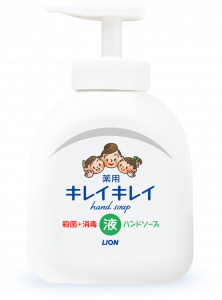 消毒効果を謳うライオンのハンドソープ「薬用 キレイキレイ」があちこちで売り切れになっていますが、その殺菌成分であるイソプロピルメチルフェノールは厚労省のページによれば、
消毒効果を謳うライオンのハンドソープ「薬用 キレイキレイ」があちこちで売り切れになっていますが、その殺菌成分であるイソプロピルメチルフェノールは厚労省のページによれば、
イソプロピルメチルフェノール
本剤は、使用濃度においてグラム陽性菌、グラム陰性菌、結核菌には有効であるが、芽胞(炭疽菌、破傷風菌等)及び大部分のウイルスに対する効果は期待できない。
ということですので、コロナウィルスには効果がありません。
ただソープの主成分である界面活性剤には脂肪を分解する効果がありますので、全体としては脂質で出来たエンベロープに包まれているコロナウィルスには効果があります。しかし、別に「キレイキレイ」で無くても(ハンド)ソープならどれでも一緒であり、特にコロナウィルス用に「キレイキレイ」を選ぶ理由はありません。何となくイメージ的に「殺菌力のあるソープ」ということで売り切れになっているだけでしょう。
家庭用消毒剤の研究
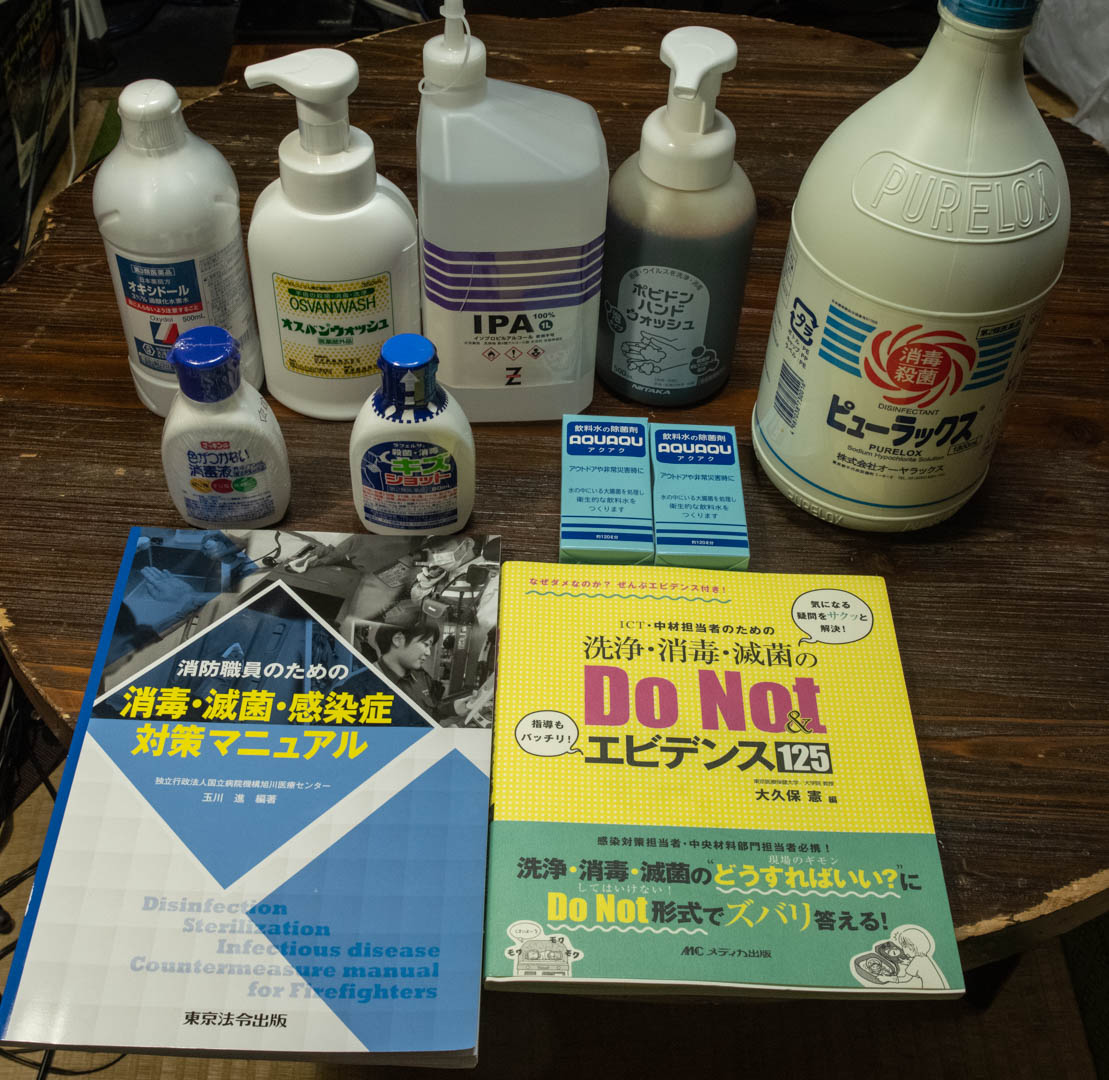 色々とネットで取り寄せて、家庭におけるベストな消毒剤とは何かを研究しています。元々会社で医療機器用の電子部品の調査を数年間やっていて滅菌装置であるオートクレーブについても調べたりして、私はこの話題に関してはそれなりに知識があります。
色々とネットで取り寄せて、家庭におけるベストな消毒剤とは何かを研究しています。元々会社で医療機器用の電子部品の調査を数年間やっていて滅菌装置であるオートクレーブについても調べたりして、私はこの話題に関してはそれなりに知識があります。
今日の新顔は「オスバンウオッシュ」(後列の左から2番目)という、塩化ベンザルコニウム、一般に言う「逆性石鹸」です。普通の石鹸は陰イオンですが、逆性石鹸は陽イオンです。それでマイナスの電位を帯びた細菌などを惹き付け菌を殺します。ただ、分類上は元々が「低水準」の消毒薬であり、効果が限定されます。コロナウィルスへの効果も今の所確認されていないようです。
オキシドールは昔から家庭でも良く使われていましたが、血の中のカタラーゼと反応して酸素を出してそれで消毒します。カタラーゼがなくて酸素が出ない場合も殺菌効果はありますが、時間がかかります。また切り傷、擦り傷で昔はオキシドールが使われましたが、しみるのと皮膚の細胞自体を痛めるので、明らかにやばい細菌やウィルスが傷口に入ったと思われる場合を除き、単に流水で洗うだけの方が無難です。
アクアクは次亜塩素酸ナトリウムですが、飲料水の消毒用です。

